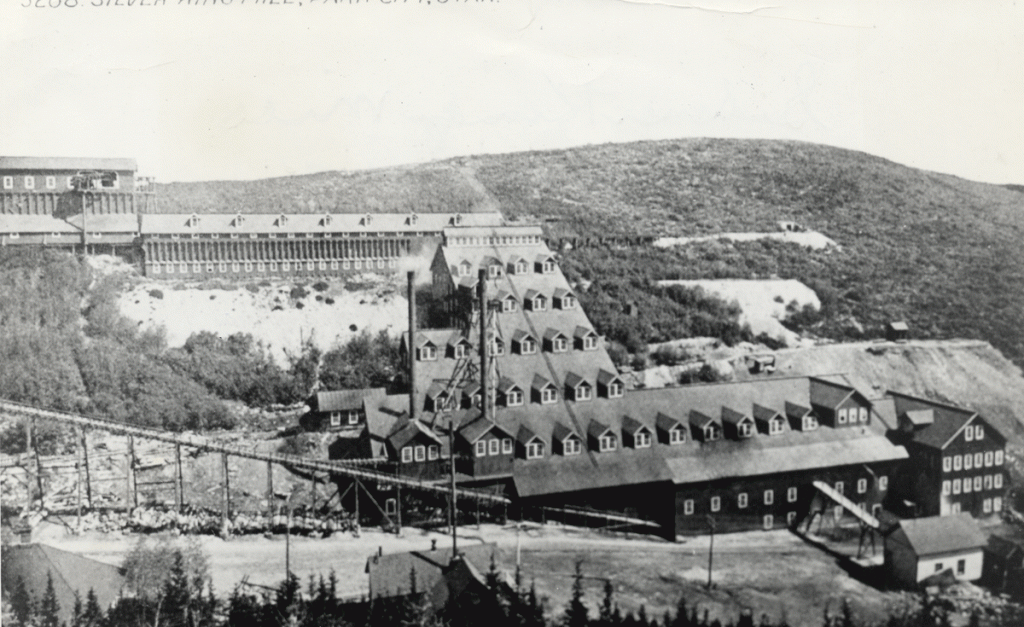When it came to his work, Silver King Mill foreman John Breckenridge Fleming was a perfectionist. In its positive form, perfectionism can result in great achievement and accomplishment. Left unchecked, this persistent striving for flawlessness can lead to depression and suicide. Did Fleming’s obsession with perfectionism lead to his early death at age 47?
J. B. Fleming was a millwright. He first served as a worker who installed, maintained, and repaired the machinery used for grinding, pulverizing and crushing ore and then later was recognized as an expert for his design and construction of some of the most efficient mills in Utah, Arizona, and Nevada. Newspaper articles and mining journal entries of the time described his work as “simply perfect in every department.” In supervising an undertaking, Fleming was said to have “kept an eagle eye open as to the perfection of the minutest details.”
In April 1898, Silver King Mine Manager Thomas Kearns announced that work would begin at once on a new mill and appointed Andrew Wallace superintendent of construction. Kearns expected the mill to be done early in 1899. Eight months later Wallace was replaced because the work was not progressing fast enough under his management. Thirty-five year old J. B. Fleming arrived in Park City from Austin, Nevada to succeed Wallace in January 1899.
Wallace’s incompetency had cost the Silver King Company much time, trouble, and expense. Under Fleming’s direction, workmen made necessary changes, and the mill was competed in a highly satisfactory manner, the company pleased with the results. It began successful operation on May 11, 1899. J.B. Fleming remained with the Silver King as superintendent of the mill.

Credit: Park City Historical Society & Museum, Himes-Buck Digital Collection
So meticulous in his attention to detail was Fleming, that he had the mill’s two Corliss engines tastefully finished in gold leaf. A Park City artist decorated them with a beautiful color painting of a rose, sego lily and California poppy. Foreman Fleming then had a wire fence constructed around the Silver King Mill office to prevent wandering cows from foraging on the plants and flowers growing there.
In August 1900, construction of the mine’s new sampler and tramway began under Fleming’s general supervision. On June 6, 1901, Foreman Fleming saw the first bucket loaded with ore go over the “perfectly” designed and built system. In late August, Fleming conducted what the Park Record called “a perfect test run” of the Silver King sampler and completed plans for a mill addition. Two weeks later, he abruptly severed all connections with the company and went looking for other fields to conquer.
After a decade of building “perfect” mills across the West, Fleming died at Sister’s Hospital on December 17, 1911 in Reno, Nevada. His obituary described him as a mining engineer of national repute and one of the best-known metallurgical experts in the country. J. B. Fleming had inexplicably stepped from the window of his room onto the roof of the Hotel Golden and fallen 40 feet into a closed court. His injuries were fatal.